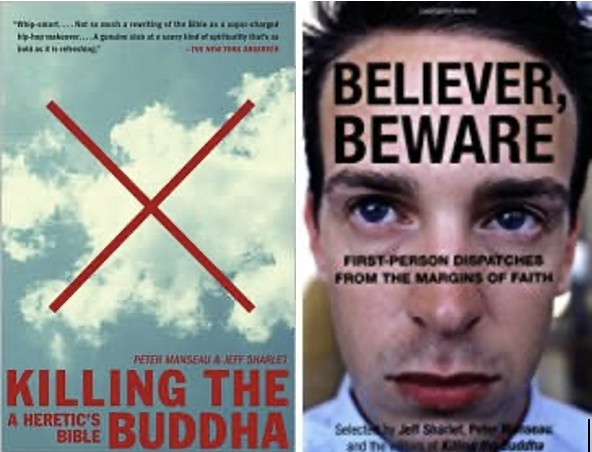Books
The Maiden of All Our Desires
"Brilliantly brooding." -- The New York Times Book Review
Fourteenth-century Europe. The Black Death has killed half the known world, and in an isolated convent, a small group of nuns spends their days in work, austerity, and devotion, chanting the Liturgy of the Hours. But their community is threatened. Rumors of heresy and a scandalous Book of Ursula, based on the teachings of the charismatic former abbess and founder of the order, have prompted the male church hierarchy to launch an investigation. The priest assigned to minister to the nuns, Father Francis, who is wracked by guilt for an unspeakable crime committed during the lawless plague years, was no friend of Ursula and can't be counted on to defend the order. Disrespect and rebellion infect some novices, and the youngest among them pines for the bishop’s chief inquisitor. And Mother John, the convent’s aging spiritual leader, fears she’s losing her mind after experiencing a vision that brings back her own rebellious past.
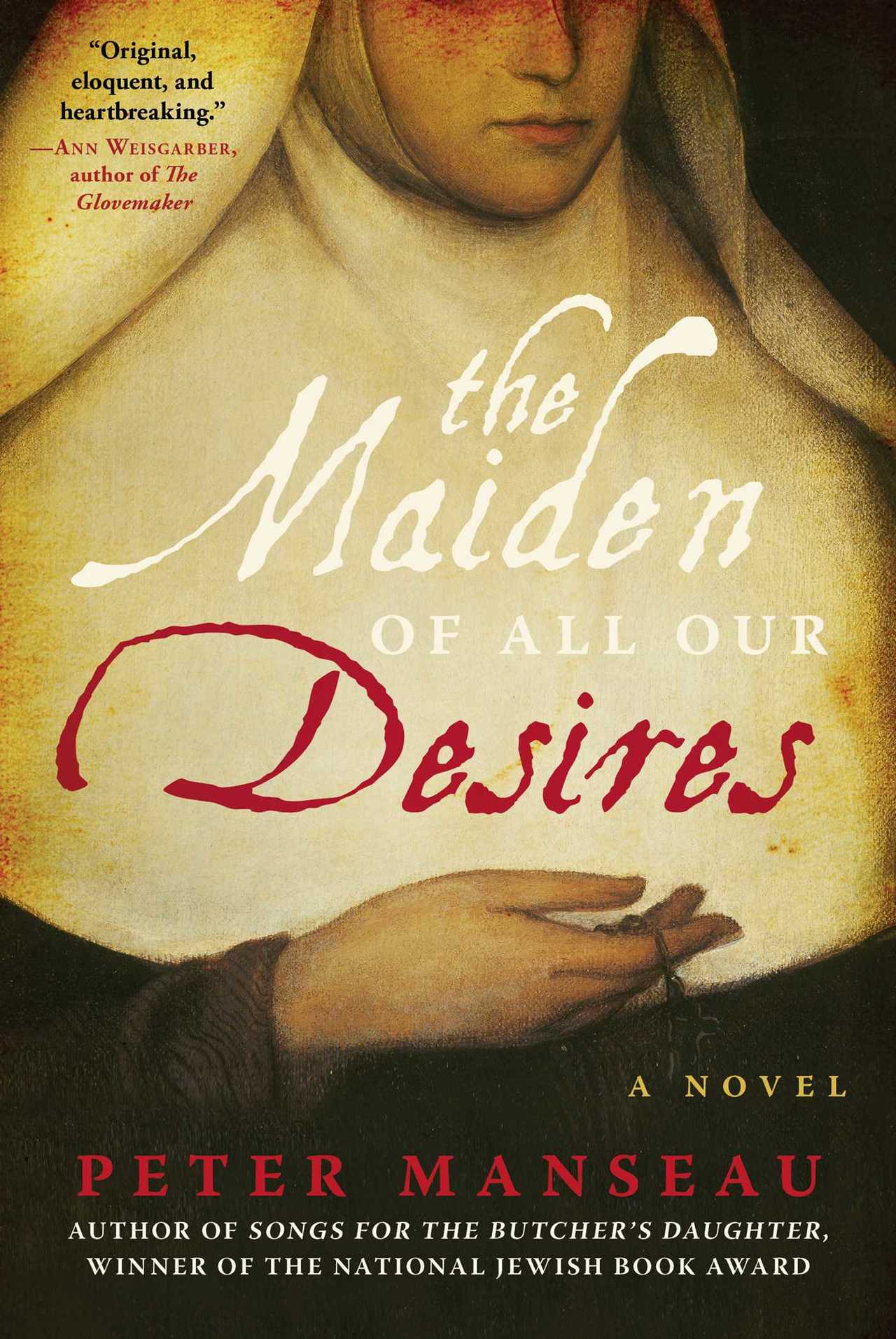
The Apparitionists
"In The Apparitionists, Peter Manseau takes us on an expedition through the beginnings of photography and its deceptions... Manseau has created an exceptional story of how photography intersects with the hope that some heretofore unexplored scientific process will reveal something about the nature of man and our limitations."—Errol Morris, The New York Times Book Review
In the early days of photography, in the death-strewn wake of the Civil War, one man seized America's imagination. A "spirit photographer," William Mumler, took portrait photographs that featured the ghostly presence of lost loved ones alongside his living subjects. At a time when artists like Mathew Brady were remaking American culture with their cameras, Mumler was a sensation: the affluent and influential came calling, including Mary Todd Lincoln.
It took a circuslike trial of Mumler on fraud charges, starring P. T. Barnum for the prosecution, to expose a fault line of doubt and manipulation. And even then, the judge's stunning verdict suggested no one would ever solve the mystery of how Mumler did it. This forgotten puzzle offers a vivid snapshot of America at a crossroads in its history, a nation in thrall to new technology while grasping desperately for something to believe in.
A New York Times Book Review Editors' Pick and one of Publishers Weekly's Top Ten Books of the Year.
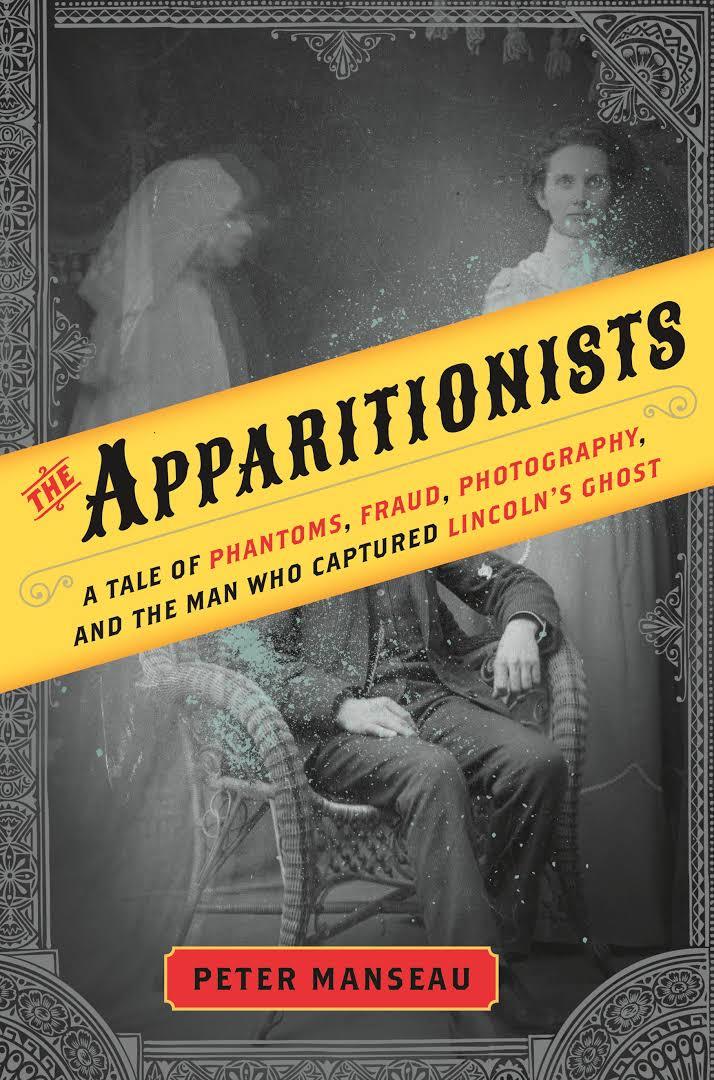
Songs for the Butcher's Daughter
In this acclaimed fiction debut, "a rich, often ironic homage to Yiddish culture and language" (Publishers Weekly), Peter Manseau weaves 100 years of Jewish history, the sad fate of an ancient language, and a love story shaped by destiny into a truly great American novel.
In a five-story walkup in Baltimore, nonagenarian Itsik Malpesh—the last Yiddish poet in America—spends his days lamenting the death of his language and dreaming of having his memoirs and poems translated into a living tongue. So when a twenty-one-year-old translator and collector of Judaica crosses his path one day, he goes to extraordinary efforts to enlist the young man's services. And what the translator finds in ten handwritten notebooks is a chronicle of the twentieth century. From the Easter Sunday Pogrom of Kishinev, Russia, to the hellish garment factories of Manhattan's Lower East Side, Itsik Malpesh recounts a tumultuous, heartrending, and colorful past.
Winner of the National Jewish Book Award, the American Library Association's Sophie Brody Medal for Outstanding Achievement in Jewish Literature, and Haddasah's Ribalow Prize.
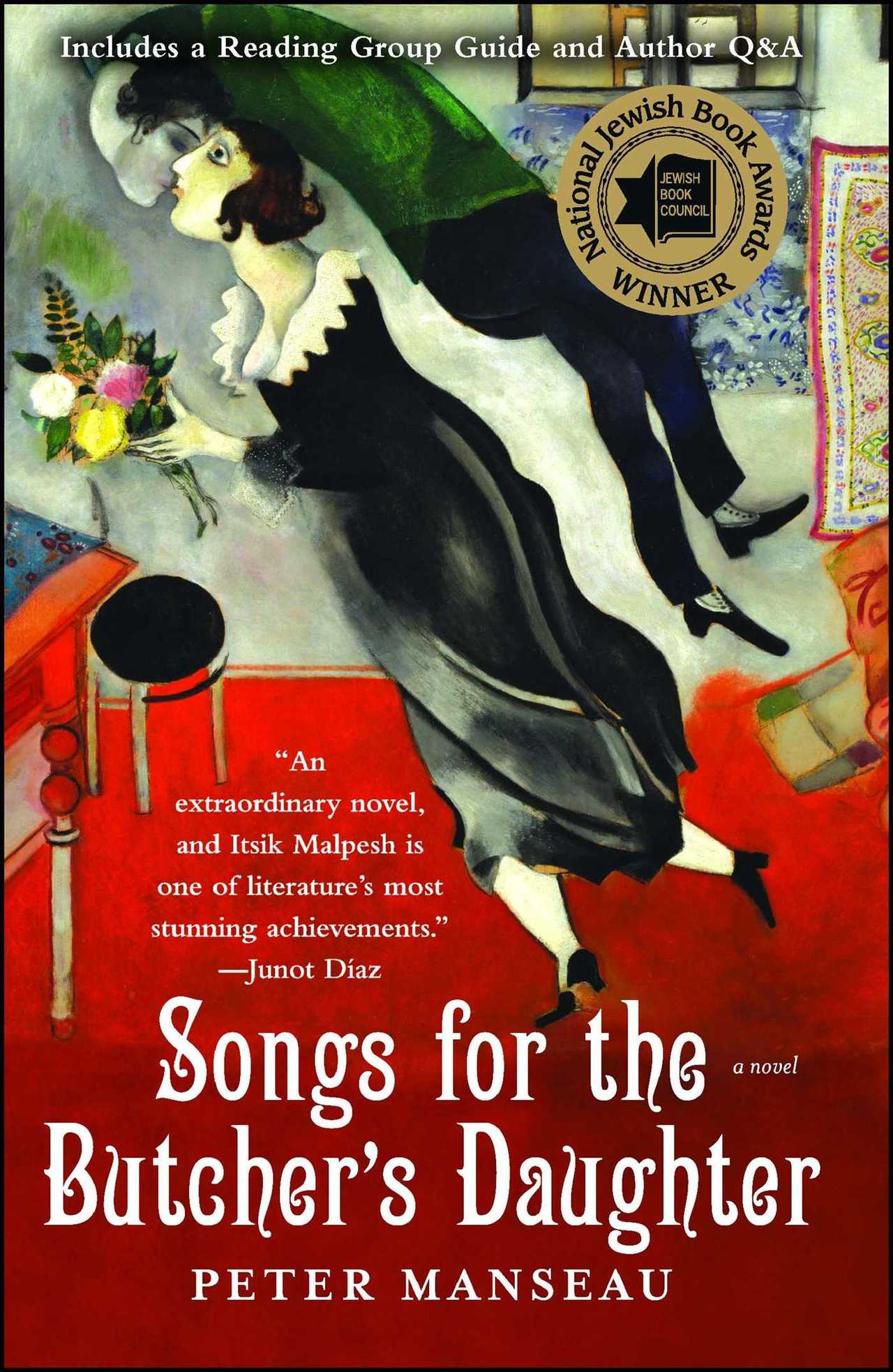
The Jefferson Bible: A Biography
In his retirement, Thomas Jefferson edited the New Testament with a penknife and glue, removing all mention of miracles and other supernatural events. Inspired by the ideals of the Enlightenment, Jefferson hoped to reconcile Christian tradition with reason by presenting Jesus of Nazareth as a great moral teacher—not a divine one. Peter Manseau tells the story of the Jefferson Bible, exploring how each new generation has reimagined the book in its own image as readers grapple with both the legacy of the man who made it and the place of religion in American life.
Completed in 1820 and rediscovered by chance in the late nineteenth century after being lost for decades, Jefferson's cut-and-paste scripture has meant different things to different people. Some have held it up as evidence that America is a Christian nation founded on the lessons of the Gospels. Others see it as proof of the Founders' intent to root out the stubborn influence of faith. Manseau explains Jefferson's personal religion and philosophy, shedding light on the influences and ideas that inspired him to radically revise the Gospels. He situates the creation of the Jefferson Bible within the broader search for the historical Jesus, and examines the book's role in American religious disputes over the interpretation of scripture. Manseau describes the intrigue surrounding the loss and rediscovery of the Jefferson Bible, and traces its remarkable reception history from its first planned printing in 1904 for members of Congress to its persistent power to provoke and enlighten us today.
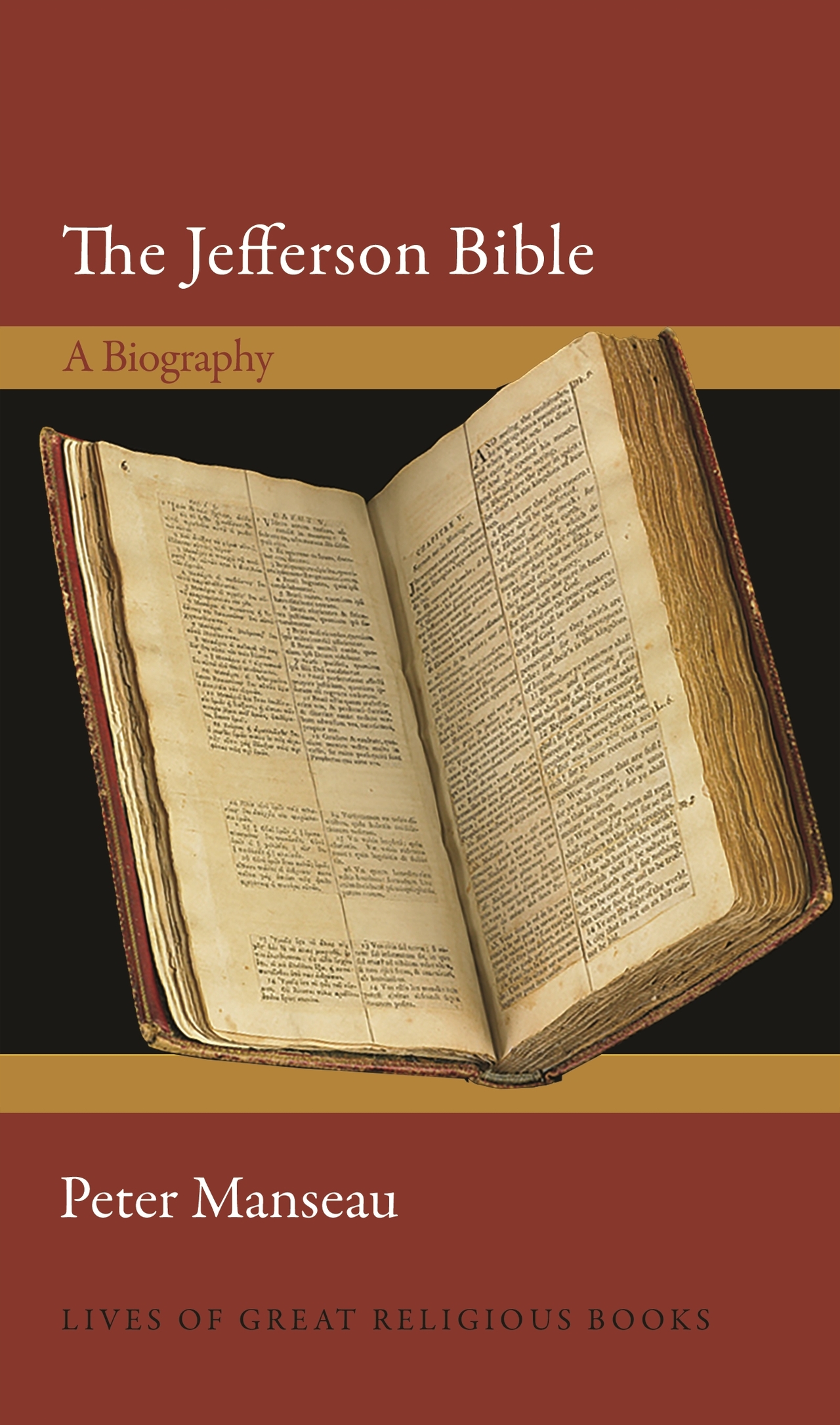
One Nation Under Gods
A groundbreaking new look at the story of America.
At the heart of the nation's spiritual history are audacious and often violent scenes. But the Puritans and the shining city on the hill give us just one way to understand the United States. Rather than recite American history from a Christian vantage point, Peter Manseau proves that what really happened is worth a close, fresh look.
Thomas Jefferson himself collected books on all religions and required that the brand new Library of Congress take his books, since Americans needed to consider the "twenty gods or no god" he famously noted were revered by his neighbors.
Looking at the Americans who believed in these gods, Manseau fills in America's story of itself, from the persecuted "witches" at Salem and who they really were, to the persecuted Buddhists in WWII California, from spirituality and cults in the '60s to the recent presidential election where both candidates were for the first time non-traditional Christians. One Nation, Under Gods shows how much more there is to the history we tell ourselves, right back to the country's earliest days. Dazzling in its scope and sweep, it is an American history unlike any you've read.
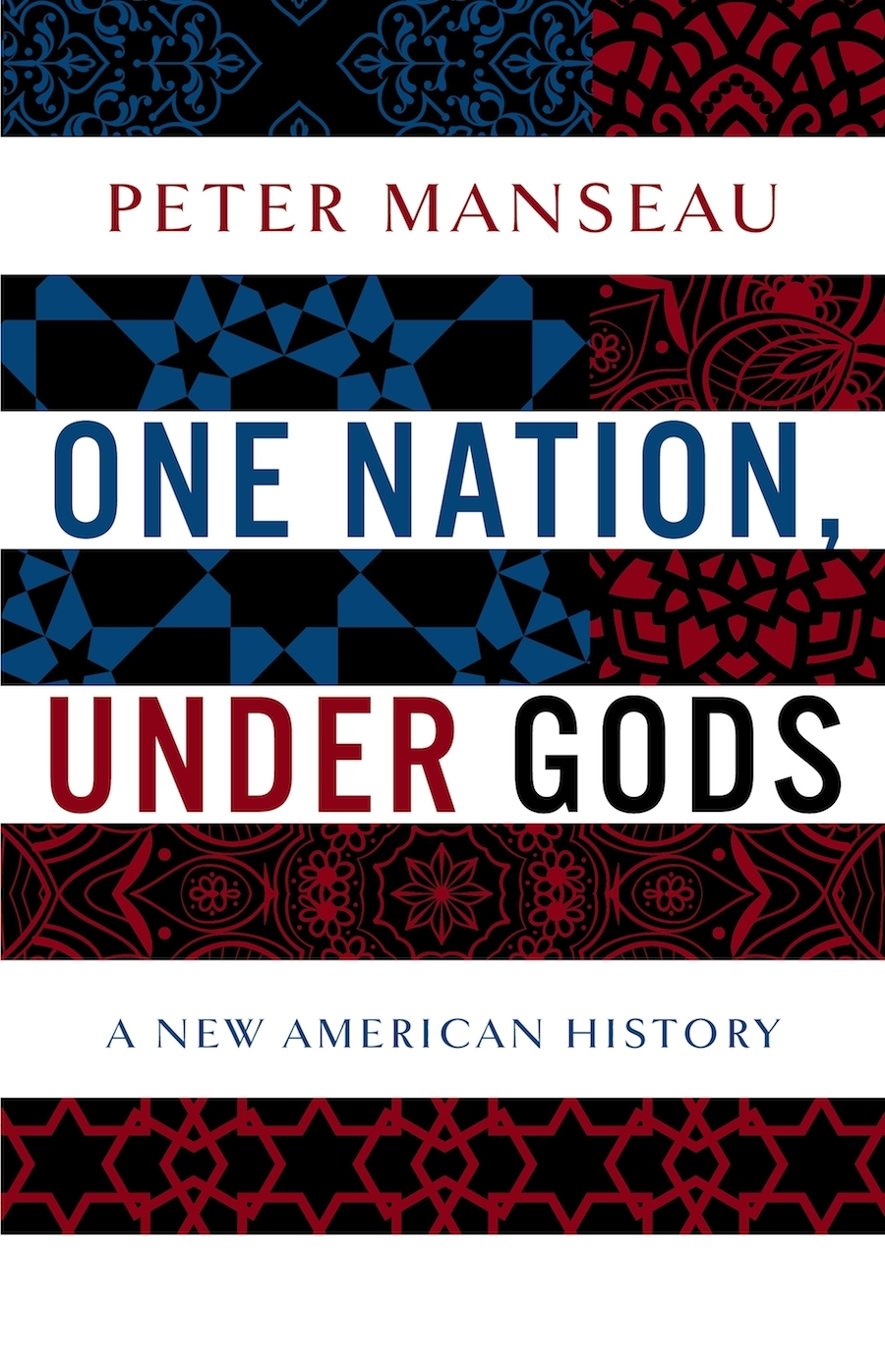
Melancholy Accidents
It came as a surprising discovery when, while conducting research that involved reading colonial-era newspapers, acclaimed writer Peter Manseau stumbled upon one report after another of "melancholy accidents"—instances of local people accidentally discharging firearms to disastrous results.
Usually, they were brief items, with the concision of dark poetry—hunting accidents, neighbor shooting neighbor, father shooting son. Dark as they were, they were also often bizarre and fascinating—such as the case of one farmer who, trying out his new musket, shot it at his barn, hitting a door hinge that split the musket ball in two, with each half ricochetting off to hit a different, distant person, each of whom was a doctor.
In Melancholy Accidents, Manseau collects and annotates a wide-ranging assortment of these woebegone and oddly intimate reports, with numerous illustrations, photos, and visuals from original period newspapers. It makes for a wholly unique contribution to the ongoing consideration of—and the recent heated discussion about—the historic place of firearms in American society.
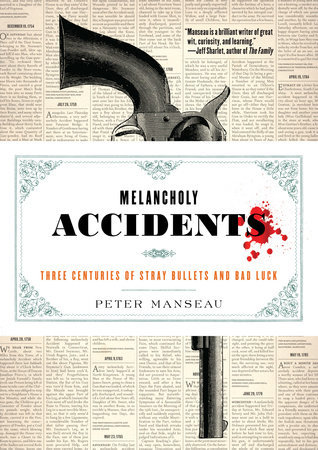
Rag and Bone
By examining relics—the bits and pieces of long-dead saints at the heart of nearly all religious traditions—Peter Manseau delivers a book about life, and about faith and how it is sustained. The result of wide travel and the author's own deep curiosity, filled with true tales of the living and dubious legends of the dead, Rag and Bone tells of a California seeker who ended up in a Jerusalem convent because of a nun's disembodied hand; a French forensics expert who travels on the metro with the rib of a saint; two young brothers who collect tickets at a Syrian mosque, studying English beside a hair from the Prophet Muhammad's beard; and many other stories, myths, and peculiar histories.
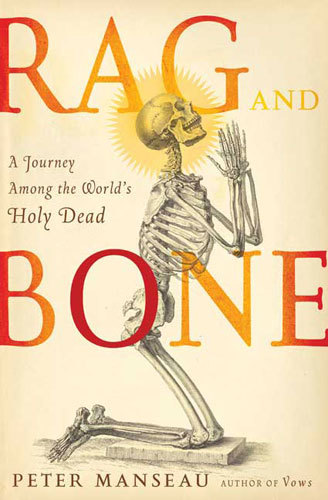
Vows
Vows is a compelling story of one family's unshakable faith that to be called is to serve, however high the cost may be. Peter Manseau's riveting evocation of his parents' parallel childhoods, their similar callings, their experiences in the seminary and convent, and how they met while tending to the homeless of Roxbury, Massachusetts, during the riot-prone 1960s is a page-turning meditation on the effect that love can have on profound faith.
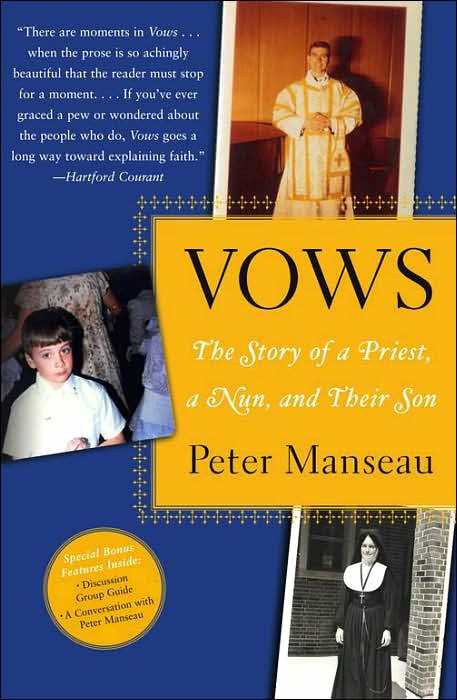
Exhibition Books
With Andrew Ali Aghapour
An illustrated history of how scientific study and religious thought have influenced each other throughout the history of the United States.
Discovery and Revelation explores the evolving relationship between religion, science, and technology in America through the centuries as humans strive to understand the world and their place in it. With at least 40 significant and rarely seen artifacts from the Smithsonian's National Museum of American History, the book highlights the way religious and scientific ideas have influenced each other and informed cultural change.
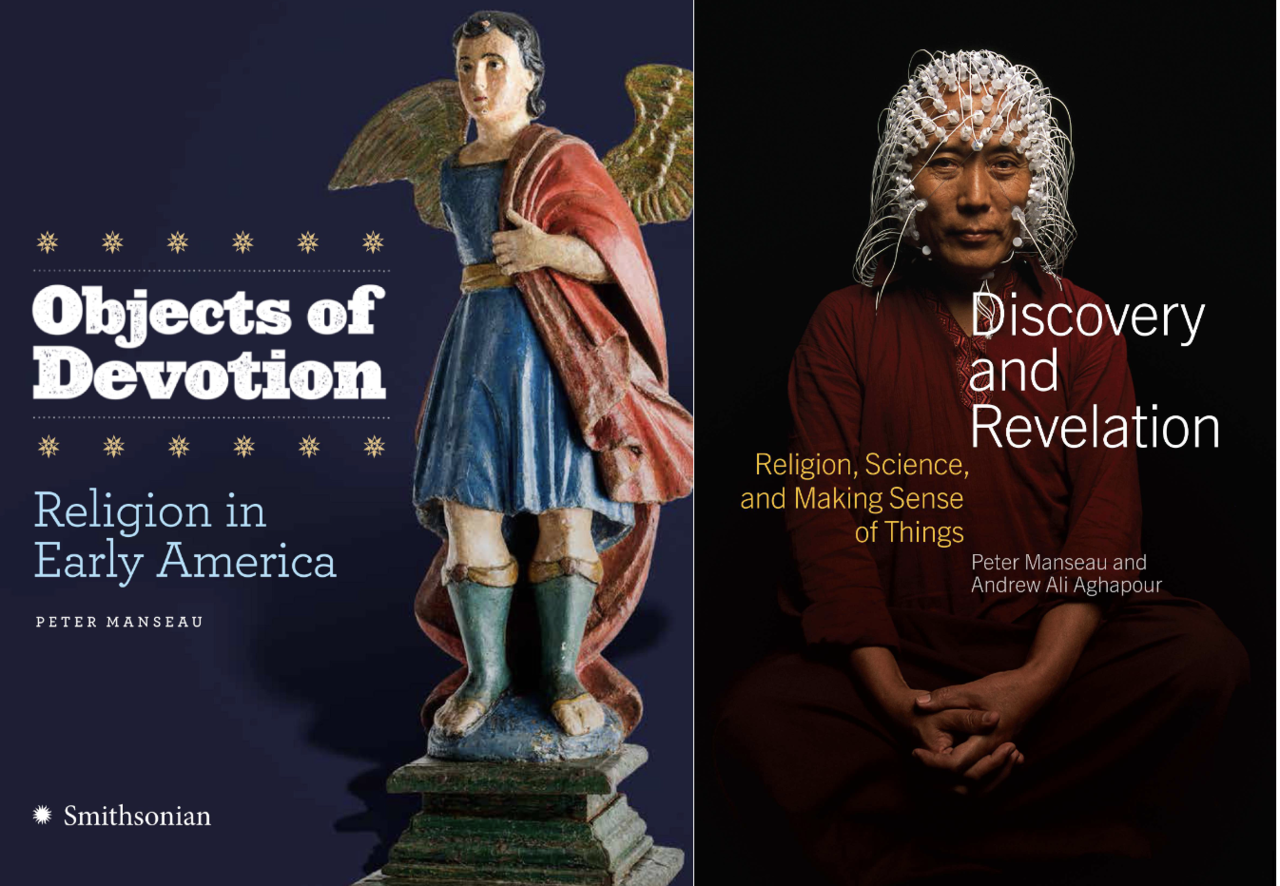
Killing the Buddha
Peter Manseau founded the online magazine Killing the Buddha with the journalist Jeff Sharlet in 2000. It soon led to two collections of thoughtful, irreverent, and surprising writing about religion: 2004's Killing the Buddha: A Heretic'c Bible and 2009's Believer Beware. Publishers Weekly called them "some of the best spiritual writing to come out of America since Jack Kerouac hit the road."
